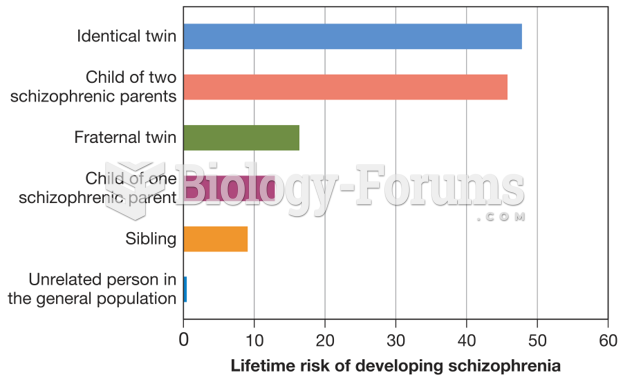|
|
|
The newest statin drug, rosuvastatin, has been called a superstatin because it appears to reduce LDL cholesterol to a greater degree than the other approved statin drugs.
Most women experience menopause in their 50s. However, in 1994, an Italian woman gave birth to a baby boy when she was 61 years old.
Earwax has antimicrobial properties that reduce the viability of bacteria and fungus in the human ear.
It is believed that the Incas used anesthesia. Evidence supports the theory that shamans chewed cocoa leaves and drilled holes into the heads of patients (letting evil spirits escape), spitting into the wounds they made. The mixture of cocaine, saliva, and resin numbed the site enough to allow hours of drilling.
Fatal fungal infections may be able to resist newer antifungal drugs. Globally, fungal infections are often fatal due to the lack of access to multiple antifungals, which may be required to be utilized in combination. Single antifungals may not be enough to stop a fungal infection from causing the death of a patient.
 Children will feel more at ease and have a better learning experience if they are allowed to touch ...
Children will feel more at ease and have a better learning experience if they are allowed to touch ...
 (A) PET scan of a healthy patient. (B) PET scan of a patient with schizophrenia. This patient will ...
(A) PET scan of a healthy patient. (B) PET scan of a patient with schizophrenia. This patient will ...





